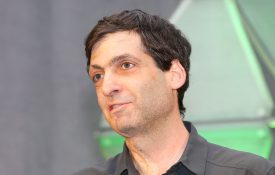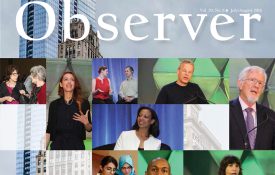-

The ‘Stubborn’ Cerebellum
Psychological scientists don’t typically describe brain areas as fickle, two-faced, or agreeable, but APS William James Fellow Richard B. Ivry explains why he ascribes a specific personality trait to the region that controls our sensorimotor system.
-

The Truth About Lying
Before Dan Ariely launches into explaining the science behind dishonesty, he tells an amusing story: God goes to Sarah and says, “You’re going to have a child.” Sarah laughs and responds, “How can I have
-

How Rats, Bats, Bees, and People Navigate Their Worlds
Nearly 70 years ago, psychological scientist Edward Tolman introduced the idea that humans and other animals have a “cognitive map” that allows them to navigate their everyday spatial environments. Evidence of physical processes underpinning cognitive
-

The Parenting Trap
The word “parenting” did not enter the popular lexicon until the 1950s, and when it did, said APS Fellow Alison Gopnik, it added fuel to a goal-centered perspective of how children should be raised that
-
Sunday’s Science Smorgasbord
The science was bountiful right up to the last second of the convention. Symposium Sunday provided convention attendees with a feast of discovery on cognition, behavior, methodology, and more.  
-
It’s About Time
From reminiscing about the past, to scurrying to work to be on time, to planning for retirement, time affects our thoughts, feelings, and behaviors on a variety of levels. In a cross-cutting theme program, “The

